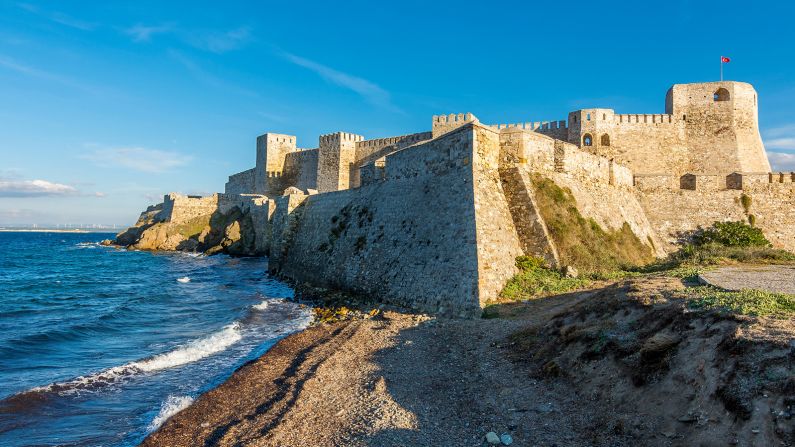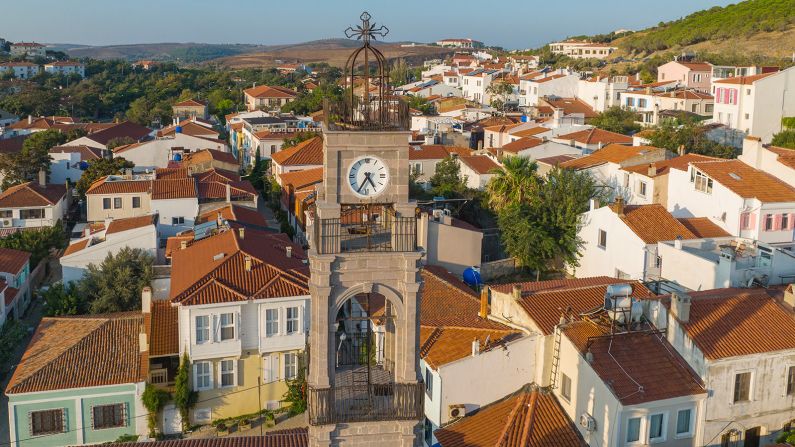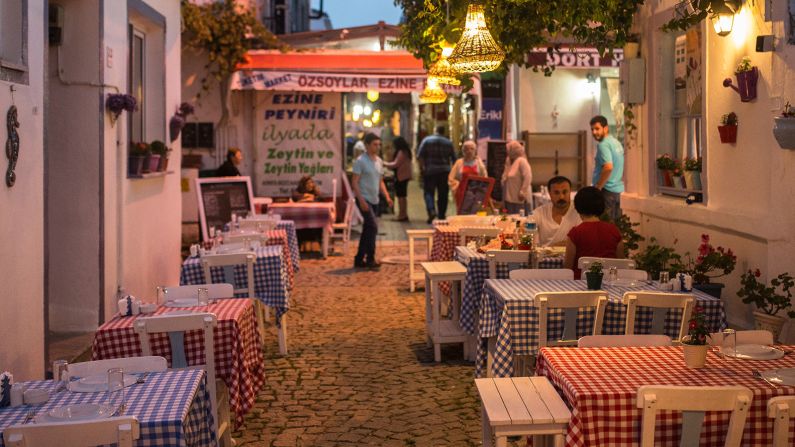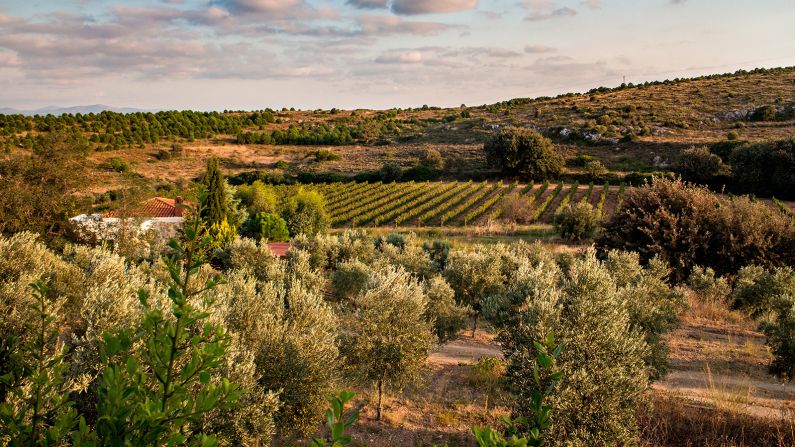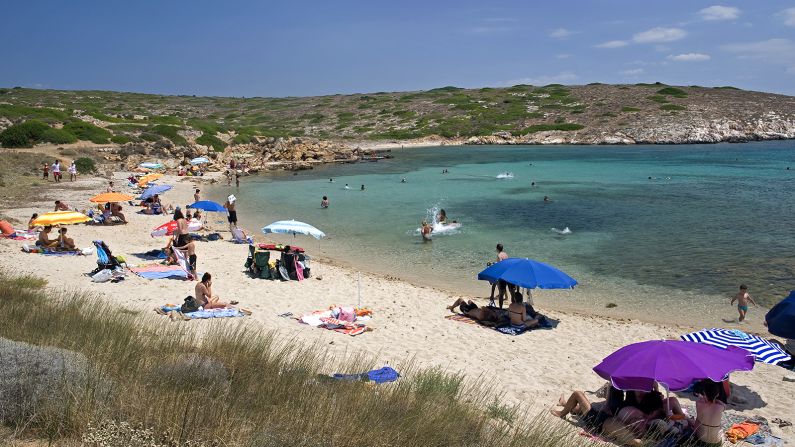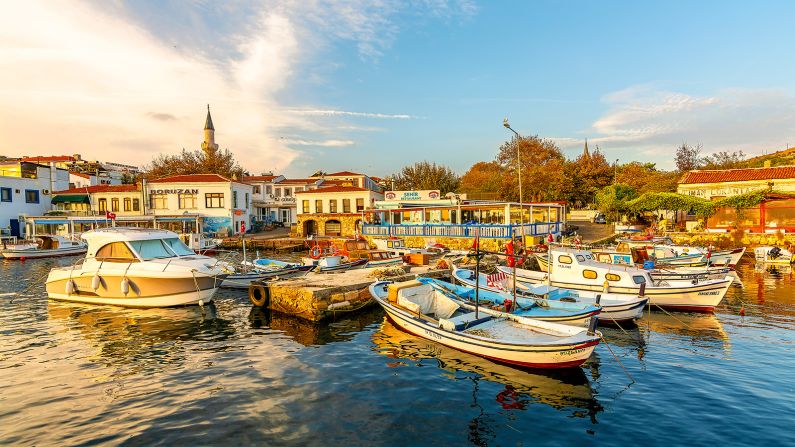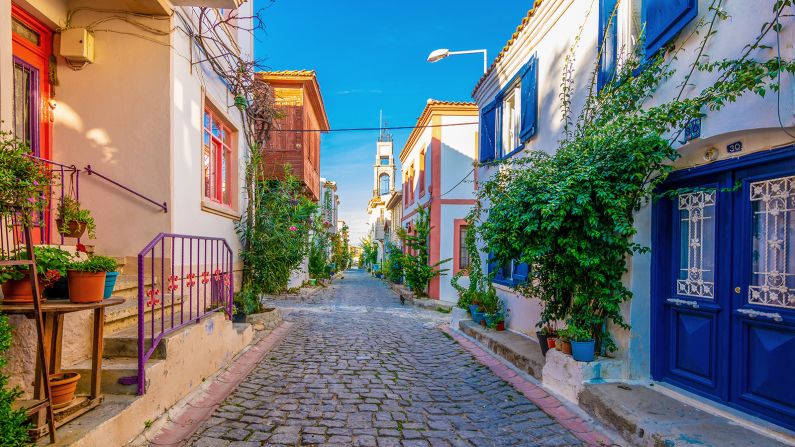Editor’s Note: This CNN Travel series is, or was, sponsored by the country it highlights. CNN retains full editorial control over subject matter, reporting and frequency of the articles and videos within the sponsorship, in compliance with our policy.
It takes around half an hour to reach the island of Bozcaada from the Geyikli port on the Turkish mainland, the vast glistening expanse of the Aegean a constant visual companion.
As this idyllic island sails into view, one of the first things that catches the eye is Bozcaada Castle, a bold protagonist that represents the island’s long history stretching back to classic antiquity.
The Romans were here. So were the Byzantines, the Republic of Venice and the Ottomans. It also gets a mention, under its alternative name Tenedos, in Homer’s “Iliad.”
And in many ways it hasn’t changed over the centuries – especially when it comes to serving up tranquil escapes relatively untouched by modern life.
Wandering around the island’s cobblestoned town center, it’s hard to avoid the remaining influences of its formerly Greek inhabitants. Everywhere there are old stone houses and taverns with wooden tables and chairs where fresh seafood, meze, rak? (anise-flavored spirit) or wine are served nightly.
The bell tower of the 19th-century Church of St. Mary, one of the two remaining Orthodox churches on the island, protrudes amongst the leveled orange-tiled roofs.
On the main square, people sit around and enjoy their coffee and sweet or savory pastry at Petit Café, while a few streets over others are leafing through books and magazines inside Bozcaada Kitap??s? (Bozcaada Bookshop).
Aroma of wine
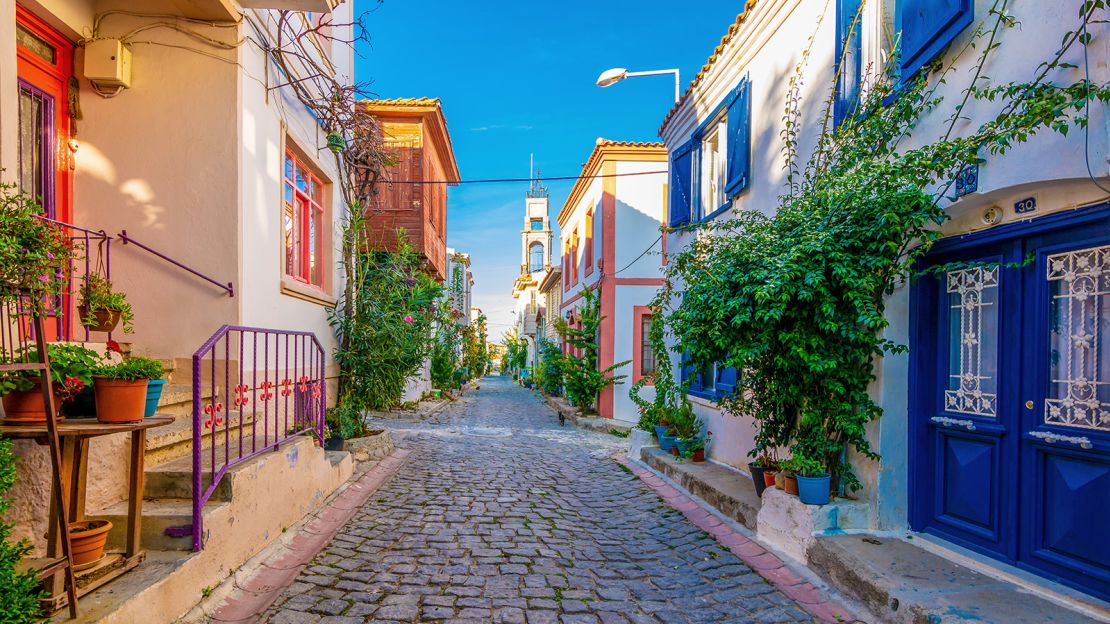
In the evenings, people gather at bars such as Salhane, a former abattoir painted a hue of lemon-yellow that faces both sea and castle, to enjoy glasses of local wine or a few cocktails.
Speaking of local wine, this is Bozcaada’s other protagonist, with a viticulture history that goes back almost 3,000 years. Winemakers old and new successfully carry on the tradition, especially endemic grape varieties including ?avu?, Vasilaki, Kuntra and Karalahna.
On Lale Street, the aroma of wine is distinct. It’s here that the Talay wine shop and production facility can be found, in operation since 1948.
A few streets later, Amadeus, run by the Austrian winemaker Oliver Gareis, also offers wine tastings, while the ?aml?ba? family winery has been around since 1925 and is now operated by the fourth generation.
However, the island’s most famous vineyard continues to be Corvus, established by the architect Re?it Soley in 2002, successfully reviving the island’s wine tradition and bringing it to an internationally recognized and award-winning standing.
It was Soley’s tenacity and Bozcaada’s long history in viticulture that inspired and brought the aspiring winemaker ?lke Yasa to Corvus vineyards in 2021, located right by Tuzburnu Bay, one of the island’s many beautiful swimming spots.
“For me, the best time on the island is during April, May, September and October,” she says. “The most crowded time is August, which intersects with the bustling grape harvest. During the day you spend hours under the sun among the vines and at night you meet up at beaches that can’t be reached by car, bonfires are lit and people dance all night.
“Especially during the annual Bozcaada Jazz Festival, the whole island turns into an open-air music venue, so many lovely people arrive, so much great conversation, rak? and wine.”
Stellar sunsets
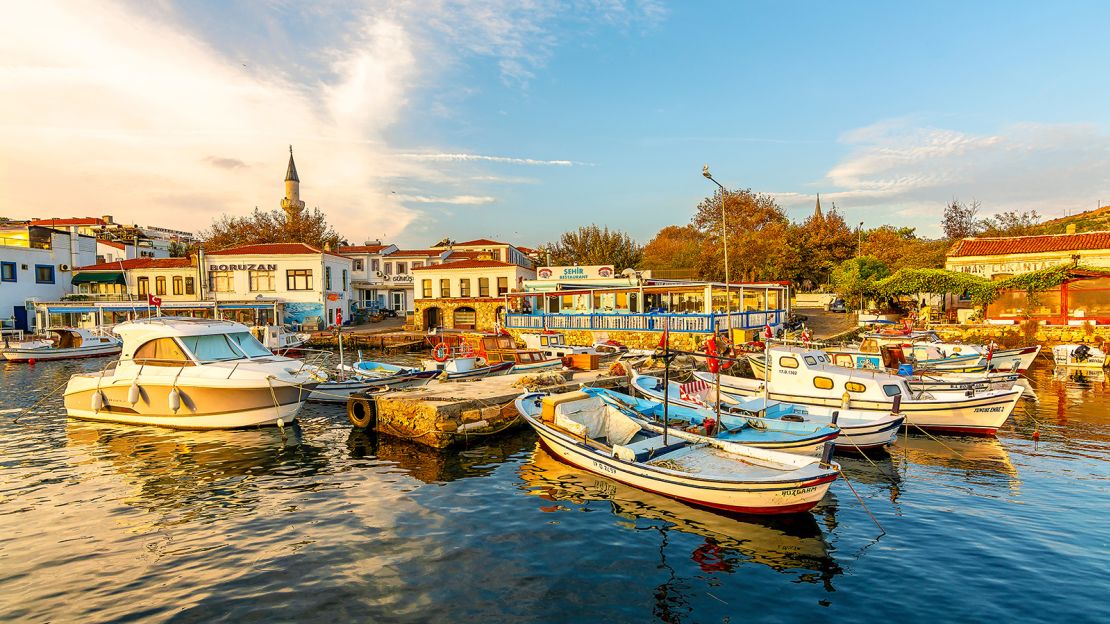
On one of the island’s highest peaks, the Sunset Houses vacation homes look out over the sea between the valley and the dusk that daily paints everything with its orange glow.
At night, the skies are filled with stars and only the changing winds offer a reminder that this is an island in the middle of the Aegean Sea.
During the day, the island’s many hiking trails lead the way through vineyards and orchards where figs, pomegranates and olives bloom. The scents of rosemary, wild oregano and sage are omnipresent.
For all these reasons and more, Bozcaada remains one of the Aegean’s most unspoilt islands. When the pandemic arrived in 2020, it became a point of escape for many city-dwellers who yearned for more space and a connection with nature.
It was during this time that Sinan S?kmen – founder and CEO of the award-winning boutique travel agency Istanbul Tour Studio – and his wife Seda Domani?, founding editor-in-chief of Vogue Turkey, decided to buy a house on the island.
Having met and married on the island, a strong emotional connection to Bozcaada made their decision easier, as well as its pristine beaches and fresh culinary offerings.
“We particularly love Sulubah?e Beach in the morning hours, where it feels like you’ve just landed on an isolated beach in the Maldives,” says Domani?. She recommends following this with a long Turkish breakfast at Rengigül, where chef Türkan ?im I??k prepares special salads, pastries and island jams according to the month’s best produce.
Street parties
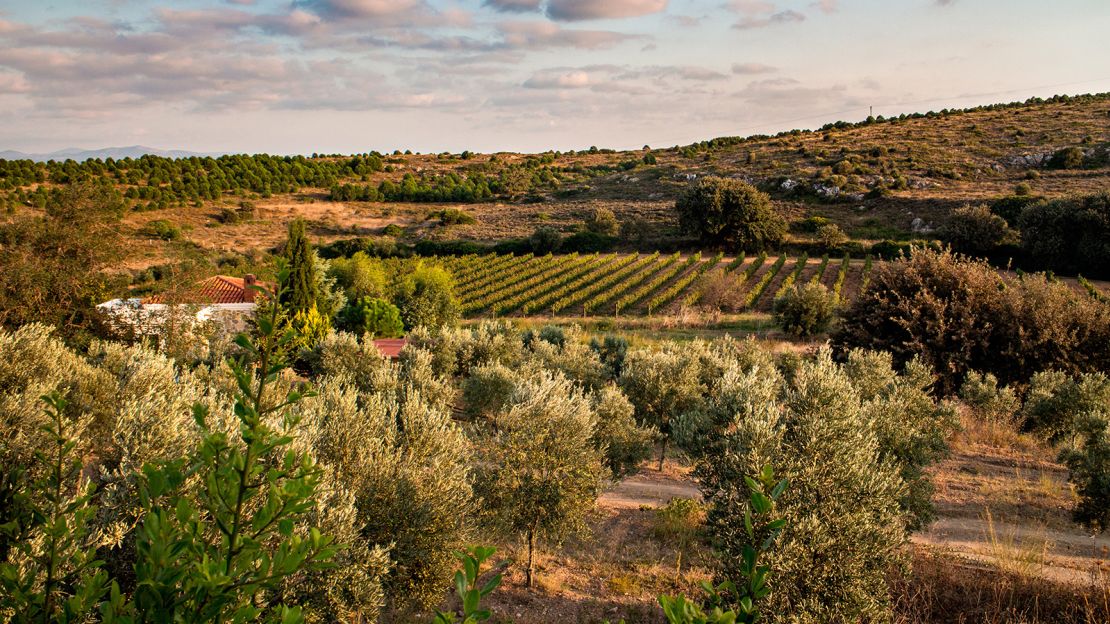
She adds: “We also love a late seafood lunch or early dinner at Yalova Restaurant; homemade Turkish delicacies such as mant?, ?i? b?rek and zeytinya?l? dolma, at Han?meli; a full course chef menu in the vineyards of Maya; cocktails at Sapa; and late-night music and DJ performances at 49 Polente, which often turns into a fun street party.”
Inside a stone house built in 1876, one of the island’s most fascinating collections hides behind a bright red door. The Bozcaada Museum is filled with more than 15,000 photographs, documents, maps, etchings and objects that recount the island’s long history.
After having come upon a black-and-white etching of Tenedos and four postcards at a second-hand bookshop in Istanbul in 1988, the antiquarian Hakan Gürüney set out on an intensive and systematic journey of collecting everything he could find concerning the history of the island.
He founded the museum in 2005 to display the amassed collection of objects and donations from islanders who recognized the importance of sharing their own personal family tales.
Upstairs, each room recounts the historic events that shaped the island. In the basement, glass displays are filled with everyday island objects of the past from vintage groceries to toys to wine bottles and so much more.
Once the ferry sets off again to the mainland, islanders are once again separated from the visitors.
And as summer fades, all but a few shops and taverns close as locals reclaim their streets, minding their own business, perhaps thinking about the past, or looking forward to the future, when the island is filled again with those who want to share their isolation, just for a few days.
Feride Yalav-Heckeroth is a freelance writer based between Istanbul and Bodensee. Her writing has been published in Kinfolk, Brownbook, Travel + Leisure and Conde Nast Traveler. She’s also the author of her own guidebook, The 500 Hidden Secrets of Istanbul.
